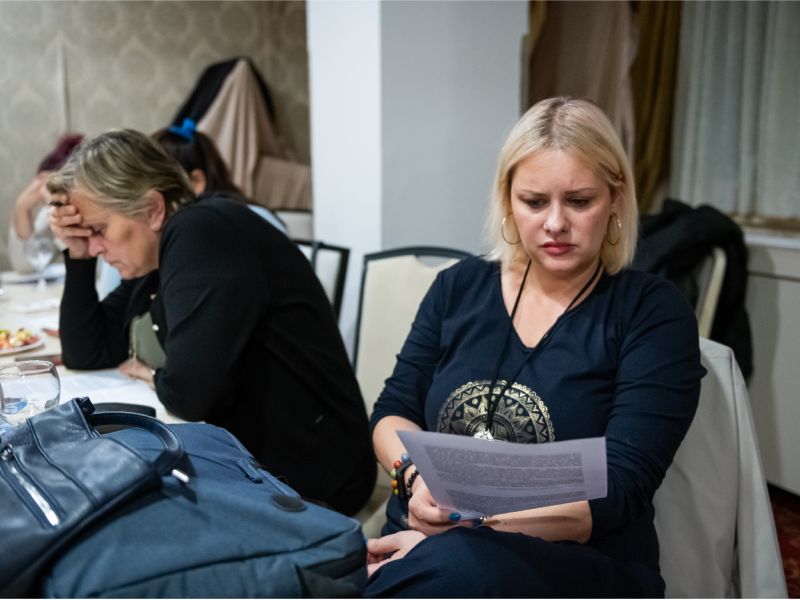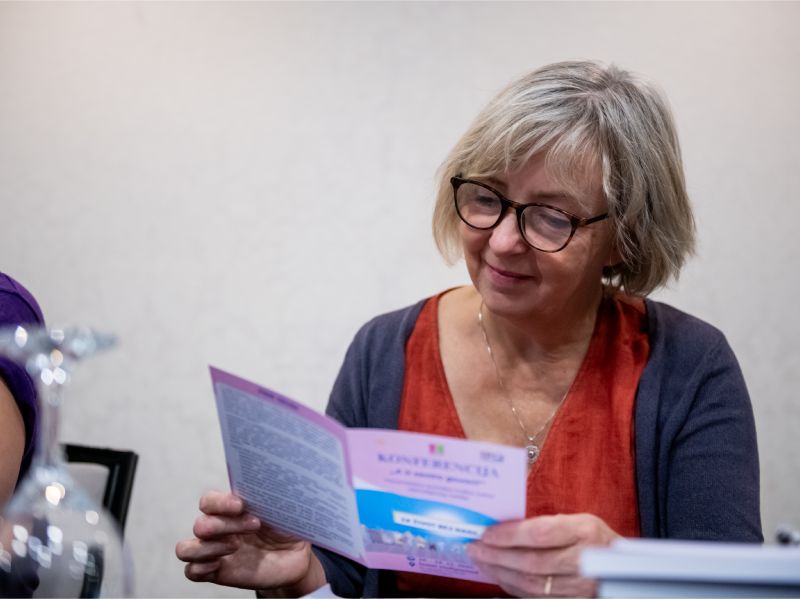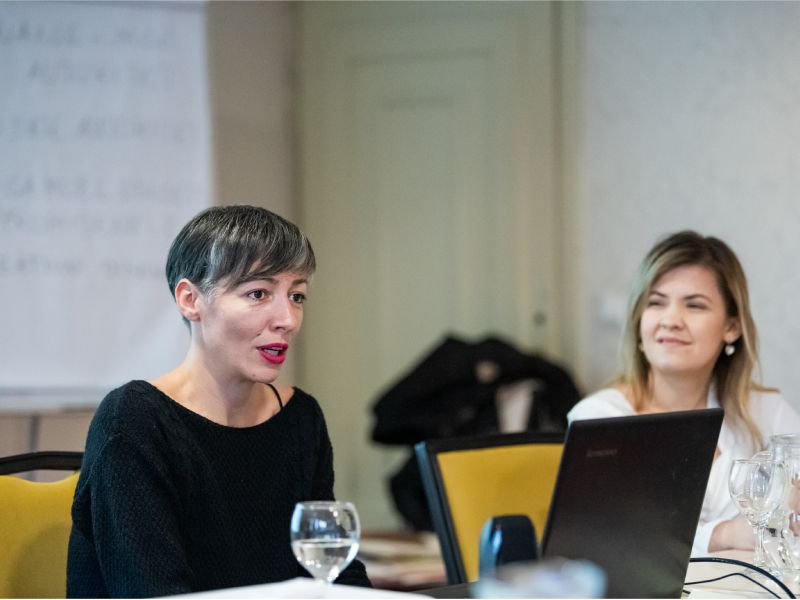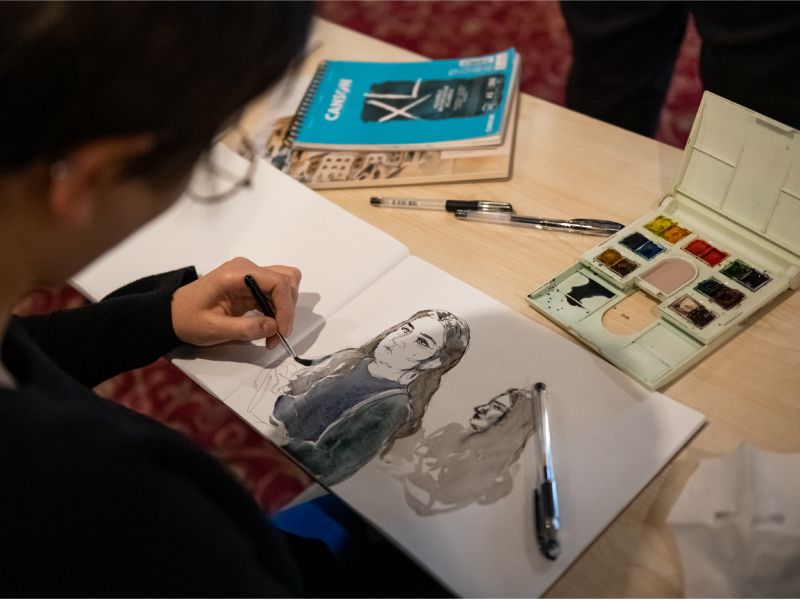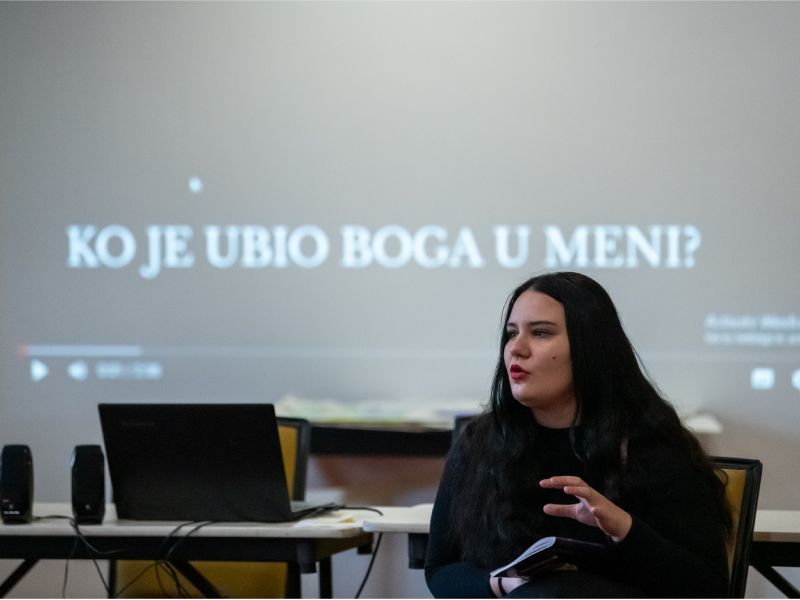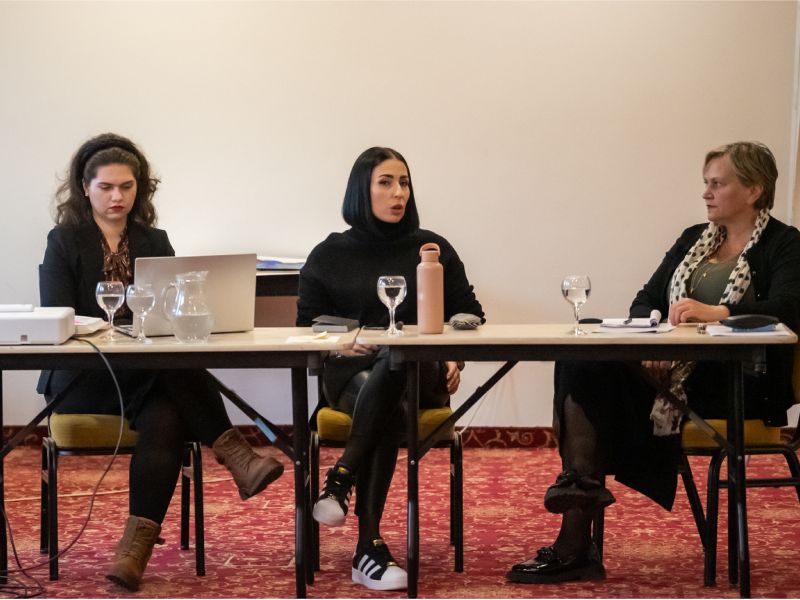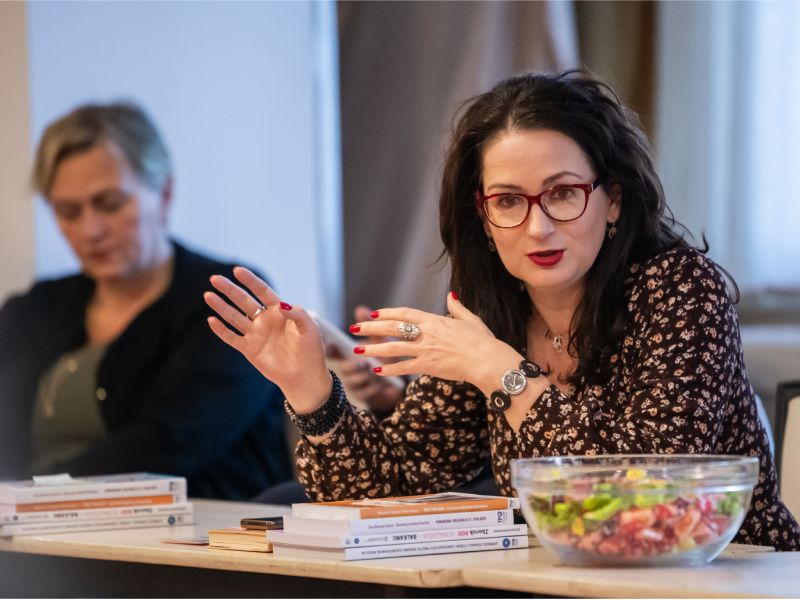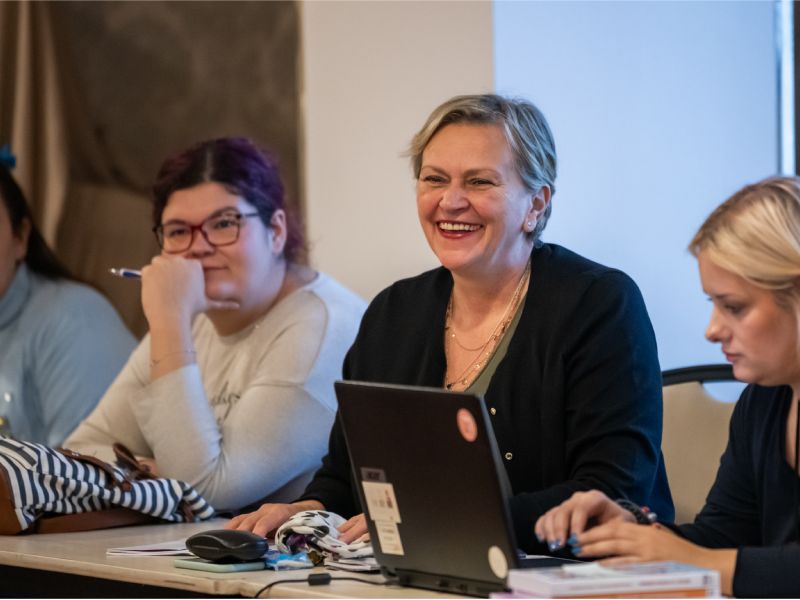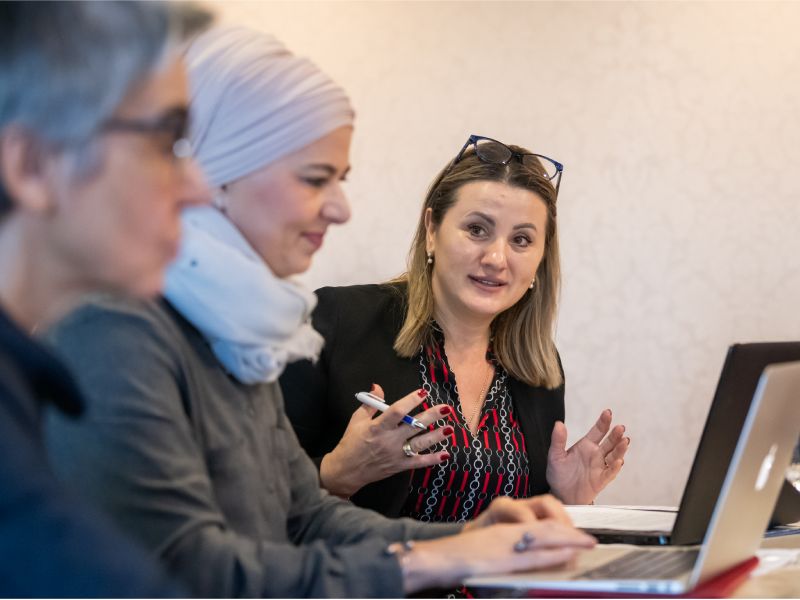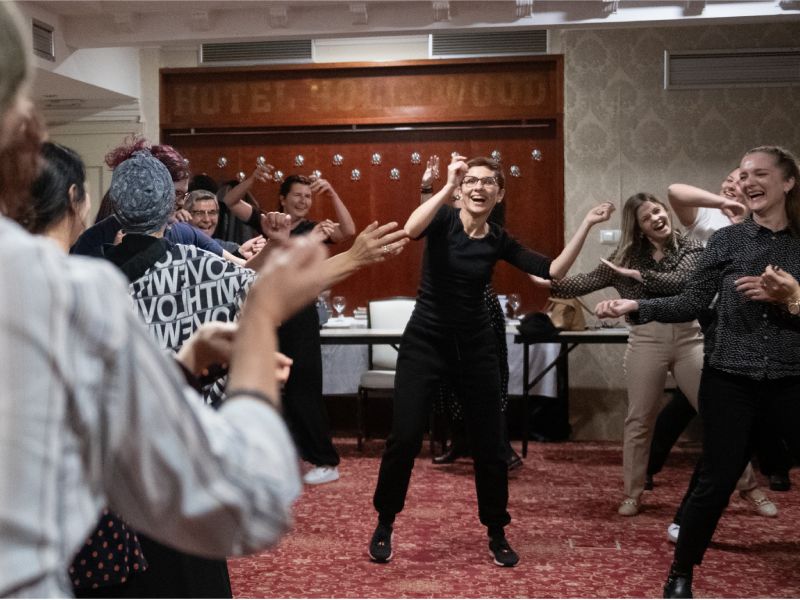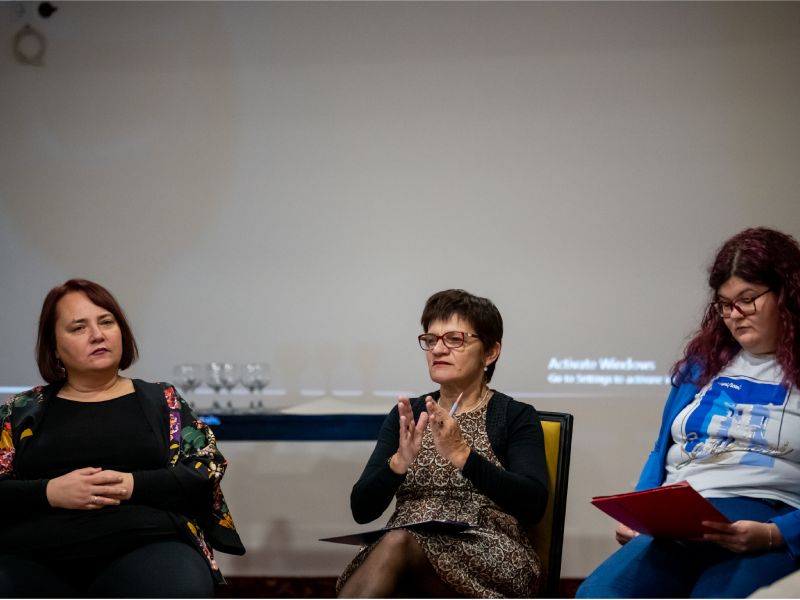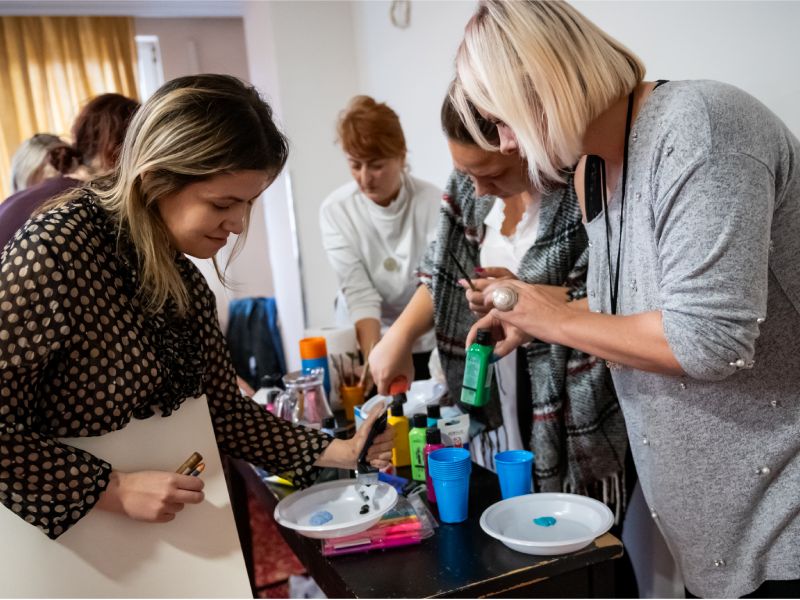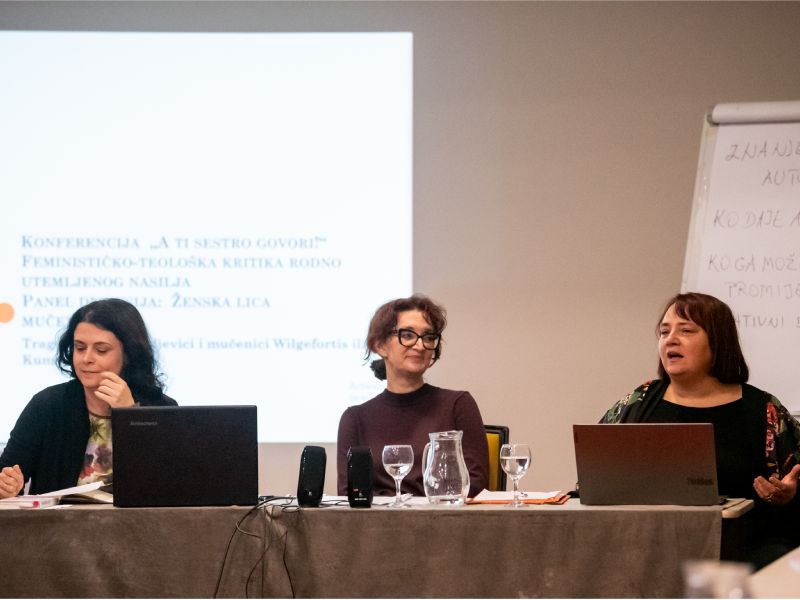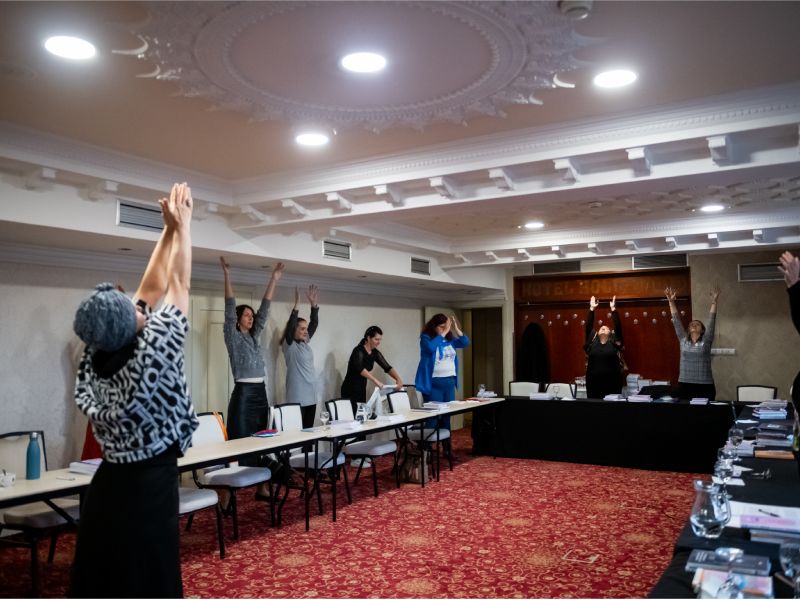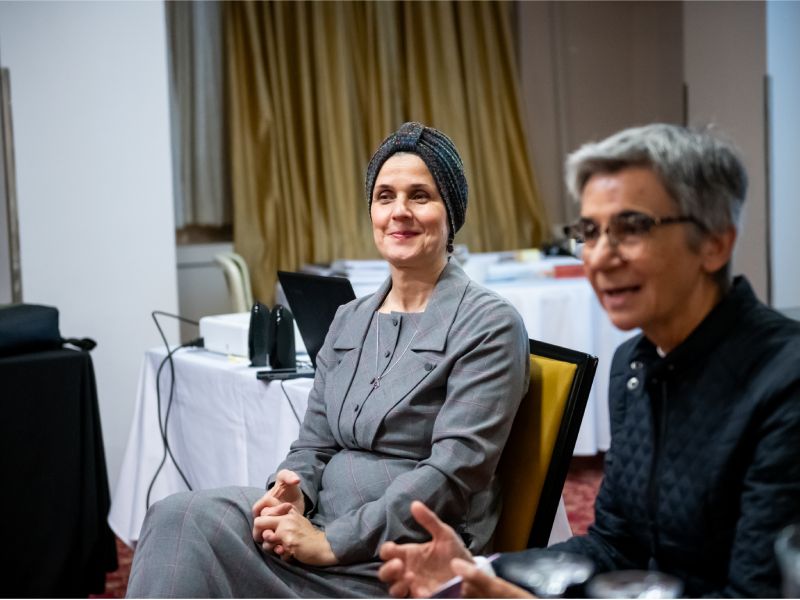The regional FER conference "And you sister, speak up" was held in the period from 16-19. November 2023 in Sarajevo. After online meetings within five courses, participants had the opportunity to meet in person. The participants discussed with experts in the fields of feminism, theology, education, literature, art, acting, journalism and legal sciences through lectures, panels and creative workshops.
The FER conference began with the lecture "The Importance of Art in Women's Activism", through which the director of the Omiš Ecumenical Women's Initiative, Carolyn Boyd Tomasović, pointed out that art is ARTiculation, a shaped experience, perception and experience of the inner and outer world and an aesthetic-symbolic way of communicating with the worlds. with others, with oneself and with God. Although female artists have historically been marginalised, engaged, activist artistic and visual female creativity is a powerful medium that encourages a change in consciousness and perception, paradigmatic changes and inspires action.
During the panel "Does (in)equality have a religion?" the panelists, Anja Zalta, Zilka Spahić Šiljak and Jadranka Rebeka Anić, stated that in the deconstruction of androcentrism in religions, the importance of the "embodied experience" of faith is emphasized - the personal responsibility and direct experience of the believer, instead of abstract concepts and doctrines. Awareness of the exclusion of women from interpretation, recognition of discontinuities in sacred texts, and women's hermeneutics and the inclusion of women in contemporary interpretations are key.
With the panel "Mental and spiritual violence", the panelists Dževada Šuško, Jadranka Rebeka Anić and Šejla Džanan concluded that within the Roman Catholic Church and in Islamic institutions there are cases of violence committed by religious authorities. Power relations and control are in the background, and it includes cases of sexual, psychological and spiritual violence. Authorities subtly brainwash their victims by exploiting trust and vulnerability.
The conclusion of the panel "Female Faces of Martyrdom", panelists Jasmina Husanović Pehar, Ajla Demiragić and Amra Pandžo, was that by analyzing the narratives of Rabia Al-Adevia in Sufism and Saint Kumernisa in Christianity, it can be established how the archetypes of the saints were formed and which are dominant qualities that were insisted on. In both cases, the annulment of femininity manifested in the body is emphasized, giving the woman the status of "honorary man" as the model and standard of female piety.
Panelists Lana Bobić and Ružica Ljubičić spoke about how women are portrayed in the media during the panel "Conspiracy of Silence and Media Coverage". Avoiding sensationalism, stereotyping, justifying, romanticizing violence, blaming the victim and protecting identity, raising awareness of the problem, empathy and respect for victims, accuracy and completeness of information, empowering the public through education, consultation with activists and experts and avoiding revictimization is key to media coverage of femicide and gender-based violence that meets ethical standards.
Through the process of therapeutic painting, a unique connection between the inner essence and creativity was revealed. Diverse and original works show us the breadth of human experience - from circles that symbolize continuity, to flowers that reflect cheerfulness, growth and change. The art workshop was held by the painter, Alisa Teletović.
Through faith as a source of strength, integrity as the basis of decisions and empathy, a woman of faith shapes a world in which every moment becomes an opportunity to spread peace and selflessly give. In this light, the believer is an architect of peace who sees in every challenge an opportunity for social transformation. Like any other woman, a woman of faith learns and grows through experiences, bravely looking into the depths of her own soul, changes and progresses while also being an inspiration to others to work on themselves - was the conclusion of the panel "Defending the integrity of women of faith as a person, the right to life, to life in peace; religiosity as a source of strength for women", in which Amra Pandžo, Ana Marija Raffai and Ana Vujković Šakanović participated.
Through movement and dance, women release positive energy, strengthen the body and pay attention to neglected parts of the body that carry accumulated tension and stress. Through these activities they praise God and express gratitude by celebrating their vitality and connecting with their spiritual aspects through physical expression. The workshop Free Movement Experience was held by the actress, Irma Alimanović Alihodžić.
During the conference, artist Kasja Jerlagić and journalist Ajša Tunović recorded moments of the conference through drawing and text. Watercolor drawings and key messages were presented at the exhibition on the last day of the conference. Also, photographer Imrana Kapetanović captured significant moments of the conference and her photos are exhibited together with drawings and texts.
The concept of "women as guardians of patriarchy" is reflected in the presence of early indoctrination of women in the primary socialization - within the family and in the secondary through the education system and globalization that directs and keeps them in the patriarchal division of labor and social roles - was the conclusion of the panel "Patriarchy our everyday, don't give us today", panellists: Jasna Kovačević, Ajša Luković and Nada Drobnjak.
The young artist, Uma Đurić, held a workshop entitled "Who killed the God in me?" based on the method of Jerži Grotovski, director and theater innovator. The workshop focused on connecting with one's own body, integrating emotions and free expression. The workshop "Note on a woman: from the oppressed to those who change the world" was held by writer Melida Travančić. The presenter pointed out that autofictional works in which authors from different countries - Palestine, Iran, Albania, BiH, Montenegro - that thematize experienced violence, are very important because this literature provides an insight into culture and customs, raises awareness of violence in different contexts.
The entire program of the FER conference is available HERE.
